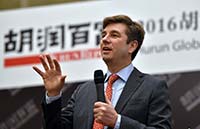

The way forward is to move away from requiring countries to make "pledges" to establishing multilaterally determined indicators for the assessment of nationally determined actions. This needs agreed criteria based on the evolution over time of per capita emissions, per capita GDP and energy intensity. On the basis of available data, national shares of the global carbon budget alone adequately capture these dynamic elements of the evolving differentiated responsibilities and respective capabilities.
A report by the National Academy of Sciences of the United States on limiting the magnitude of future climate change also concludes that assessment of national strategies is best done in terms of a quantitative limit on domestic GHG emissions over a specified time period - in other words a GHG emissions budget. The unresolved global climate policy issue is that without developed countries sharply reducing their emissions immediately, other countries cannot get their fair share of the carbon budget for eradication of poverty.
At Rio + 20, in June, a new paradigm emerged where the global concern is no longer seeking environmental protection, or "risk management", but a sustainable development perspective focusing on human well-being within ecological limits. The growth prospects of developing countries suggest that the challenge lies in devising national strategies for the development of the infrastructure necessary for sustained growth in a manner that will also move to a low-carbon economy and society.
To shift international cooperation in this direction, developing countries must now set the sustainable development agenda, because in the coming years they will be making increasing demands on ecological resources, as they consume vast quantities of natural resources for infrastructure, urbanization and food security.
The annual meetings would then no longer be focused on "conference diplomacy" and annual emissions reductions but instead on "networks for innovation" and modification of consumption and production patterns, and the trajectory of emissions to understand how best to make the transition to global sustainability.
The author is a former director of the United Nations Environment Programme.
 Fun time for children at international toy expo in Beijing
Fun time for children at international toy expo in Beijing
 Huawei launches new smartphone P9 in Vietnam
Huawei launches new smartphone P9 in Vietnam
 Top 10 box office movies on China market in H1
Top 10 box office movies on China market in H1
 Woman resigned from high salary job to make notebooks
Woman resigned from high salary job to make notebooks
 Hurun publishes Global Chinese Big Philanthropy Report 2016
Hurun publishes Global Chinese Big Philanthropy Report 2016
 Top 10 new economy issues in China
Top 10 new economy issues in China
 Wetland helps preserve ecology of Dianchi Lake
Wetland helps preserve ecology of Dianchi Lake
 A million ways to beat the summer heat
A million ways to beat the summer heat

